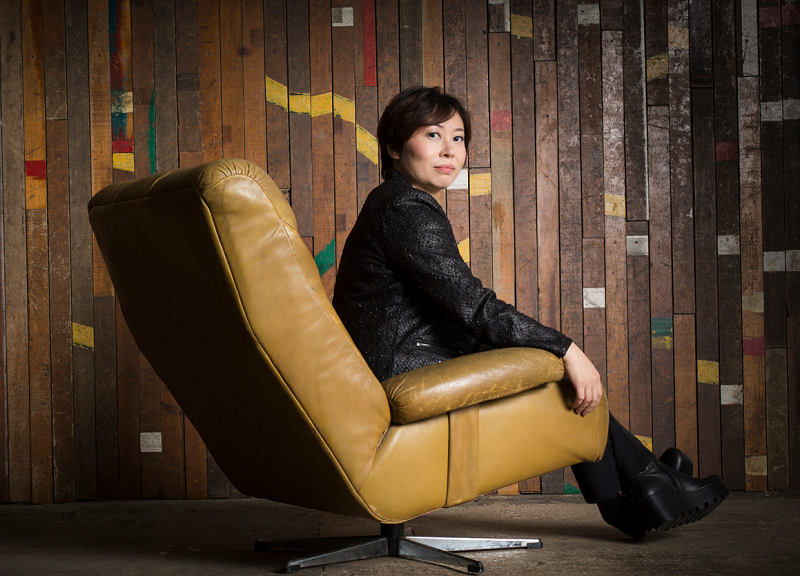
A NINTH GEARED TO OUR UNCERTAIN TIMES
The Beethoven 9th at center stage this week was over the top. Conductor Xian Zhang was making the grand gesture again and again while pacing this glorious work, bringing it home in a brisk 63 minutes. Her letter-perfect crescendo building up in the opening movement was enough to make every one sit up and take notice right away.
It was the right work at the right time in our lives—-a cry of hope during a cruel war raging in the Ukraine as well as a cry of exuberance over the Covid pall which, if not vanquished, continues to wane. (Mask-wear on stage and off was down to only at about a five percent level Dec. 2.) Beethoven’s call for embracing all brotherhood in his text has never seemed timelier.
In the “Ode to Joy” finale, Reginald Smith Jr. carried off the baritone solo with dash, focus, fine projection and an impeccable German accent. And in the end, when the SFS Chorus came on some 85 strong, they knocked the devotees back with their rousing power, as shaped by fill-in choral director David Xiques. The chorus showed a vitality I never knew it had. The subsequent robust ovations, complete with shouted enthusiasm, lasted a good four minutes.
Conductor Zhang had started off with English groups and has since led almost every international orchestra you’ve heard of as guest. She helped shape an exquisite string sound in this work, not just in the violins, but also that delectable soft pairing of cellos with basses, all of it articulate: Beethoven at his most subtle. If the SFS brass and timpani were overproducing this night, nearly knocking me off my chair, perhaps it’s just where I was sitting, where even the trombones appeared to aim right toward my row.
Beethoven’s grand and revolutionary opus is far more than the choral “Ode.” The artful slow movement for example is full of deceptive cadences; every time you think he’s winding down, he can take off on yet more inspirational flights. And in his finale, where he starts off with a sonic tossed salad, he proceeds to a brilliant sequence of quotations from earlier, rejecting each sonically and methodically in order to focus on that radical choral finale with text by Schiller. Contrasting with the German sound was, in the Ode’s middle, the tenor solo set to music sounding like a mounted Turkish janissary band. It’s one of countless original touches, compensating for all the scores’ choral high notes (high A’s for sopranos!), well suited to choking many an unwary chorister. Writing a supernal work, Beethoven also demanded super-human singing, or something close.
The listeners have been getting a bonus this time around with two viable and contrasting curtain-raisers. The English turn-of-the-20th-century composer Samuel Coleridge-Taylor produced an effective “Ballade” seemingly celebrating the glory of the British Empire—a 12-minute rhapsodic piece that would make a welcome overture to some imagined opera.
Michael Abels added a very clever “Emerge” as a historical tone poem reflecting the course of our Pandemic—coming out of the chaos and separatism, playing musical themes in a gradually more coordinated fashion, and finally with total control via the chatter of brass and syncopated rhythms.
MUSIC NOTES—The orchestra personnel list is pockmarked with glaring vacancies, including principal cello, associate concertmaster, harp, two flutes, third bassoon and bass trombone, leaving substitutes to fill in at current concerts. With Music Director Esa-Pekka Salonen away for more than a month, these slots seem unlikely to be filled any time soon….The other vocalists in the 9th were, from the top, Gabriella Reyes, Kelley O’Connor and Issachah Savage.
BEETHOVEN’S NINTH SYMPHONY by S.F. Symphony and Chorus. Also Abels, Coleridge-Taylor. Davies Hall, San Francisco, Dec. 1-3. For info on SFS, call (415) 864-6000 or go online: www.sfsymphony.org.